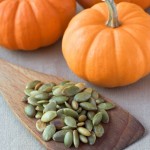5 Super Seeds With Amazing Benefits

 Here are five super seeds that health experts around the world recommend people should include in their diet. Sprinkle these over your baked dishes and breakfast cereal for a health boost
Here are five super seeds that health experts around the world recommend people should include in their diet. Sprinkle these over your baked dishes and breakfast cereal for a health boost
Good things come in small packages. In the world of wellness, super seeds embody this truism like no other food. Packed with essential nutrients and with multiple health benefits, they are nature’s precious gifts to humanity.
1. Chia seeds: Vegetarians miss out on Omega-3 fatty acids since they can’t eat seafood. An easy solution to their dietary dilemma is chia seeds (and flaxseeds), which are a good source of this nutrient. They are also tightly packed with protein and fibre.
Benefits: Chia seeds reduce the risk of diabetes and metabolic syndrome. Studies have proven that their consistent use lowers blood pressure. They are recommended to dieters since they give the feeling of being full, so you are less likely to overeat.
How to use: They are tasteless so you can add them to smoothies, breakfast cereals or baked goods.
2. Flaxseed: Flaxseed is low in calories, high in protein, fibre and alpha linolenic acid (ALA), a plant-based omega-3 fatty acid.
Benefits: Flaxseed combats free radicals and improves digestive and cardiovascular health.
How to use: The easiest way for the body to digest and absorb flaxseed is in the ground form. So, add ground flaxseed to your breakfast items like pancakes, spread it over yogurt, oatmeal and cereal or sprinkle over baked goods.
3. Pumpkin seeds: A good source of Vitamin E, zinc and manganese, pumpkin seeds also contain some types of hard-to-find antioxidants. A single tablespoon has 4.7 gm of healthy fats (monounsaturated fats that lower bad cholesterol and increase good cholesterol levels).
Benefits: They boost immunity, and regulate insulin levels.
How to use: Use as garnish over soups, salads and stir-fry veggies or noodles, or munch on them plain.
4. Sesame seeds: Desi foodies will like them for the nutty flavour and crunch. Sesame seeds are rich in calcium, magnesium and copper.
Benefits: They increase levels of Vitamin E in the body, improve heart health and boost the immune system. Studies show they may reduce risk of multiple sclerosis.
How to use: Sprinkle generously to add crunch and health to salads, chicken, fish, breakfast cereals and yogurt.
5. Sunflower seeds: High in ‘good fats’, namely monounsaturated and polyunsaturated, sunflower seeds are so good to taste you can snack on them plain when hunger strikes.
Benefits: They have a high concentration of Vitamin E, compared to other sources, making them great for your skin and hair. Sunflower seeds are good for the bones since they are high in magnesium.
How to use: Snack on them, add them to breads, salads and soups, or sprinkle over cold cuts.